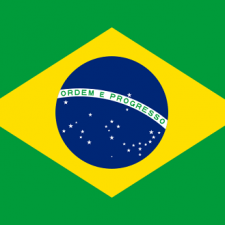The Brazilian mobile market will rise from $2.8bn gross revenue to $.25bn by 2027, with downloads hitting 39.1bn in the same year.
That’s according to mobile analytics firm Sensor Tower’s latest mobile market forecast. Although their estimates don’t include revenue or downloads from third-party storefronts, it would seem that they’re confident Brazil will quickly eclipse Australia, the Middle East and Africa to be the 11th largest mobile market by revenue and the second largest by downloads.
Sensor Tower singles out Brazil in their report based on its remarkable revenue growth, noting, “In 2022, Brazil experienced a remarkable surge in revenue, with a growth rate of 33%, an increase from $945M in 2021 to $1.3B in 2022.” They attribute this growth to “increased smartphone penetration and improved internet connectivity.” They do also note that there has been a slow decline in the share of revenue attributed to mobile gaming itself, however even by their 2027 estimates, gaming will still be the largest share of mobile revenue.
Viva Brazil
It should of course be noted that Sensor Tower’s third-party omission does present a bit of a sticking point for markets like China, where Google Play is not available. We can reasonably assume therefore that China’s ranking in some respects (fifth by downloads, projected to be eighth by 2027) is to be taken with that caveat. However, for markets like the US where the iOS App Store and Google Play still reign, Brazil could become a truly notable market.
Brazil has recently become notable in our coverage due to Chinese companies like Tencent and NetEase marking it out as their chosen market for new game launches - most notably the world’s biggest MOBA, Tencent’s Honor of Kings - after the licensing freeze seems to have soured their outlook on the domestic market. The advantages over other markets like America and Europe, which Chinese companies have typically had more influence in, could be the lack of political baggage and the relative youth of the market offering more freedom.
Brazil itself also boasts a thriving mobile game industry, with 38% of all titles developed in the country being for the platform. Events in the country have also been of note, including BIG Games Festival, which we attended in June. The festival saw its best year yet in terms of attendance, indicating that internationally and domestically the Brazilian games market is generating significant interest.
The rise of Brazil may also be partially fueled by the decline of the US in terms of revenue, which has declined for three years in a row according to Sensor Tower. It’s notable that Africa continues to struggle to break $1bn in terms of gross revenue by their estimates, however with new attention on the market we may also see renewed interest in boosting mobile and internet penetration in the country, something which would also lead to mobile game adoption on a wider scale.
The emergence of Brazil, the decline of the US and the subsequent interest from China indicates that over the next few years there is going to be an increasingly dynamic market upsetting the commonly accepted rankings many publishers and developers have come to expect. It may be that, sooner or later, the Brazilian market becomes as important an emerging market as MENA or SEA.
We listed Tencent and NetEase as two of the top 50 mobile game makers of 2022. We'll be unveiling our list for 2023 in the coming months.






















